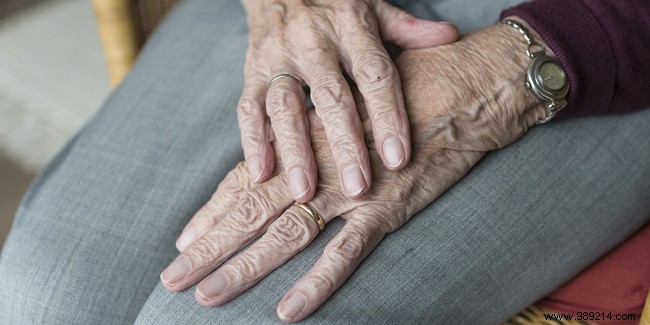
France now has 1.5 million people aged 85 and over. They will be 4.8 million in 2050. 10% of the over 75s live in an accommodation establishment for dependent elderly people (EHPAD). Nearly two-thirds of people living in institutions are aged 85 or over. What is the situation of these very old people? How to accompany them? How to support caregivers?
Extreme old age is characterized by a person's advanced age and degree of autonomy. We generally consider that we enter this category from the age of 85. Age from which the state of health deteriorates further (mainly bone and joint ailments in women, cardiovascular diseases and diabetes in men) and the loss of autonomy increases:one person in five over 85 is dependent according to the Ministry of Solidarity and Health. This is why the vast majority of these very old people can no longer live alone at home and are forced to enter a specialized establishment. They are 21% after 85 years to be in this case and represent 60% of the residents of these establishments.
For very old people who continue to live at home, their state of health deteriorates markedly with age. Thus, 39% of people over 85 in this case report severe activity restrictions, as indicated by the National Institute of Statistics and Economic Studies (Insee) in the latest edition of its “France, social portrait” which devotes a particular focus to the state of health and dependency of seniors. On the other hand, " the share of people [living at home] declaring a poor or very poor state of health increases steadily with age, rising from 9% of 65-74 year olds to 25% of 85 year olds or over. ", as the authors of this study indicate.
In addition to the physical problems due to their old age, these people also report suffering more from psychological ill-being (especially women) due to their isolation and their feeling of uselessness for society. Their mental health deteriorates with the feeling of being severely limited physically and due to infrequent social relations.
4.3 million people (62% of whom are women) regularly provide non-professional help to their very elderly relative. In 44% of cases, it is the spouse, 13% a parent, 14% another family member and 17% a friend or neighbour. When the very old person is still living at home, this help takes the form of shopping for their loved one, their cleaning, their toilet, making medical appointments or even carrying out administrative procedures. It can also be accompanying your loved one on their travels or managing their placement in a care center or a retirement home. The caregiver is also there to provide psychological support to their elderly loved one.
The caregiver must not forget that old age is not a disease even if it is accompanied by specific weaknesses and pathologies. Attention and respect must be in order and even more so when the very elderly relative has lost certain faculties. The caregiver must also always be on the lookout to know how to spot the onset of depression, which is more common than you might think in the elderly.
Accompanying a loved one with a loss of autonomy is not easy, nor easy. This is a heavy commitment. This situation upsets the daily life of the caregiver and also transforms the relationship he had with his loved one. It can even lead to exhaustion. This is why it is necessary to provide support to caregivers. The latter can be found in particular at local information points for the elderly, which are present throughout the territory. There are also websites dedicated to carers, such as those of the Company of carers, With our loved ones, Helping attitude, or Aids Alzheimer for carers faced with this disease. Some associations also offer training to reflect on the role of carer or to learn about diseases that particularly affect the very elderly, via "support and respite platforms".
Faced with the challenge of taking aging into account and the support that those around you must provide at this time of life, a law relating to the adaptation of society to ageing, voted in 2015, sets the objective of building ' " a society where everyone can age well. It proposes to improve and facilitate the daily life of the elderly and their entourage" , and aims to enable seniors to live independently for as long as possible.
This law provides in particular for the recognition of the status of "close caregiver", but also what it calls the "right to respite" which gives the caregiver the means to take rest. Caregiver leave was created in January 2017 to replace family support leave. This is a paid leave taken in agreement with their employer which allows them to suspend or reduce their professional activity to support a loved one who is losing their autonomy.